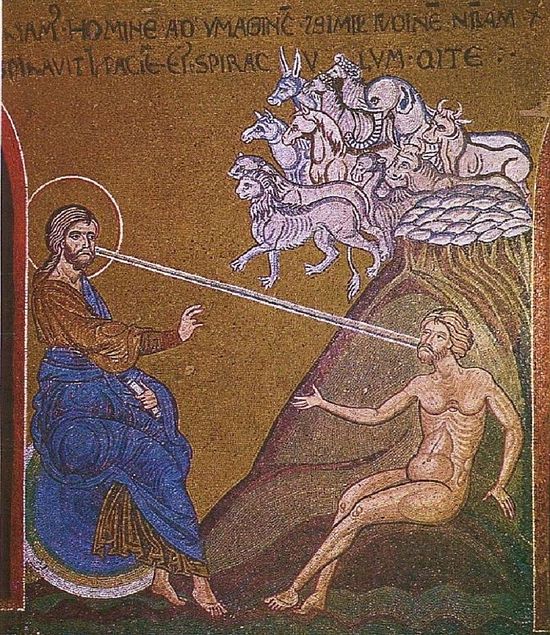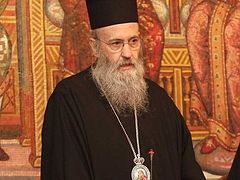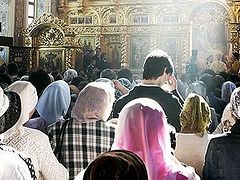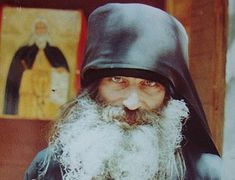Source: Arab Orthodoxy
May 29, 2016
"Man is created in the image and likeness of God." In this sense, man is an icon of God and he is called to become a living icon of Christ.
This means that the human being who is separated from the divine Being loses the cause of his existence, because the divine element within us is that which establishes humanity. Man has no existence without God. There is no humanism without theism.
From another perspective, the God in whose image we were created is God the Holy Trinity. Consequently, the divine image that is within each of us is an icon of the Trinity. Thus God, without whom I cannot be truly human, is the God of reciprocal love. He is not a single individual who loves Himself, but three individuals who love each other.
We humans are called, then, to be people who love each other with shared loved (perichoresis).
We must reflect the spirit of Trinitarian communion on earth.
None of us can attain human perfection in isolation. I must love others and be loved by them.
* * *
If all of this is not available in society-- in global, human communion-- it creates various forms of pain and suffering and in the end, the God-man is distorted, as he is present and saved in the person of Christ, with the crown of thorns and the robe of purple, the God-man whom Pilate brought out to the crowd and said "Behold the man" (John 19:5). This is the icon that is usually placed on the divine altar. Then the Jews and the chief priests responded, "crucify Him, crucify, Him... He must die because He made Himself the Son of God" (John 19:6).
"Behold the man:" wretched, tormented, rejected... even the form does not remain. The Book of Hebrews provides us with a hopeful way out in the dispensation of God the Creator in the divine words of the God-inspired Psalm:
"What is man that You are mindful of him, or the son of man that You take care of him? You have made him a little lower than the angels; You have crowned him with glory and honor" (Hebrews 2:6-7; Psalm 8: 4-6) "for the suffering of death crowned with glory and honor, that He, by the grace of God, might taste death for everyone" (Hebrews 2:9).
There is a contrast between Christ's glory and His decent (to hell), between man's glory in creation and the resurrection (the new creation) and man's weakness on account of his freedom, his suffering, his passions, and his inevitable death.
Despite this contrast, man approaches the pure angels and likewise their glory and holiness with dignity, becoming a king of creation, master over all God's works. The Son of man became a suffering, dying man that might might become a glorified god.




